An illiterate educated mother
We use Google Cloud Translation Services. Google requires we provide the following disclaimer relating to use of this service:
This service may contain translations powered by Google. Google disclaims all warranties related to the translations, expressed or implied, including any warranties of accuracy, reliability, and any implied warranties of merchantability, fitness for a particular purpose, and noninfringement.


As soon as the sweet taste of food comes, Dr. Ommurthy Anil remembers his mother. It's been a few years since mom stopped cooking due to age and health. Mother used to cook very sweet meat. However, he does not eat meat,' Dr. Anil said. While she was describing the food cooked by her mother, she was sitting together on the couch and smiling.


Dr. to continue the conversation with the mother who only speaks Maithili. Anil himself became an interpreter. Anil himself began to answer the question, "Didn't mother ever eat meat?" No, no. He used to eat. He left after a fight with his father,' he said with a laugh.
Even though Anil's mother only speaks Maithili, she does not understand Nepali. In Maithili, she further clarified what had happened to Anil - 'I was angry because he came with meat on the day of Vrat. I used to eat meat. I liked it. However, I got angry because he brought me meat on a day when I should not eat it and asked him not to eat it from that day. And I didn't eat.'
cardiologist Dr. Anil also takes that incident as a proof that his mother's anger is very strong. "It seems that the mother who spends day and night at the hearth would be angry even to control the activities outside the hearth," he remembered the old days, "In the morning, the mother used to scold the household workers and make them work." It seems that it is not even an insult. But, mother's voice was strict.'
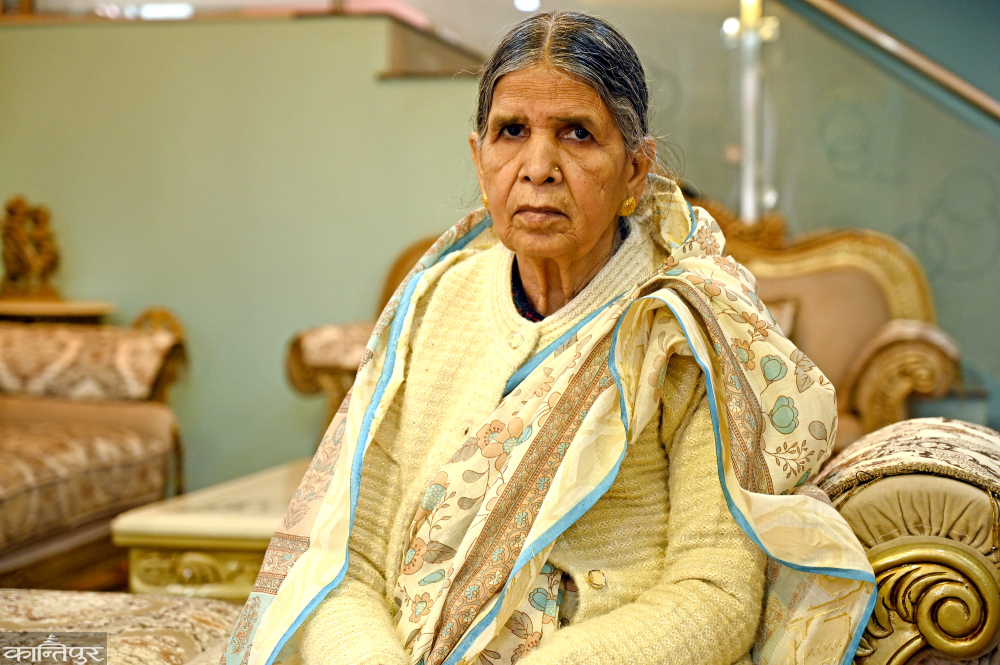
Anil tried to correct his statement when his mother, who was sitting next to him, looked at him with a slight frown - 'Mother was as strict in her speech as she was soft in her behavior. Who ate what, what did not eat, what is healthy, who needs what. It was all the mother's responsibility. Even if he knew the needs of the people in the house himself.'
Anil feels that despite growing up in a different environment and culture, the way his mother understood and embraced the advancing society is her pride. Mai, who has spent her entire life as the breadwinner of her son and family, is not able to make pilgrimage to her recently, so he feels sad.
According to Anil, only very few people in the village used to brew tea at that time. If you want to eat tea, you have to go to the market and buy it. However, he remembers that his mother served tea and breakfast to every person who came to visit his father's house. Although strict by nature, my mother is very generous in terms of feeding. He never felt that he would be satisfied by feeding others,' he said, 'He always ate only in the middle of the day until he cooked and fed himself. By feeding everyone since morning. Anil claims that his mother's habit of enjoying by feeding others has also passed on to him. She also enjoys cooking and feeding. "Truly speaking, by feeding others, the store is never empty," he said.
Anil's mother Rajkumari Devi is illiterate. She did not learn to read and write. Father Tejnarayan Singh studied up to graduation at that time. His father was known as a well-educated man not only in Dhamora, now Balwa Municipality-10 of Mahottari, but throughout the Terai. That's why the house was crowded. His mother was busy serving tea and breakfast to the guests who came to the house. Even though he does not know
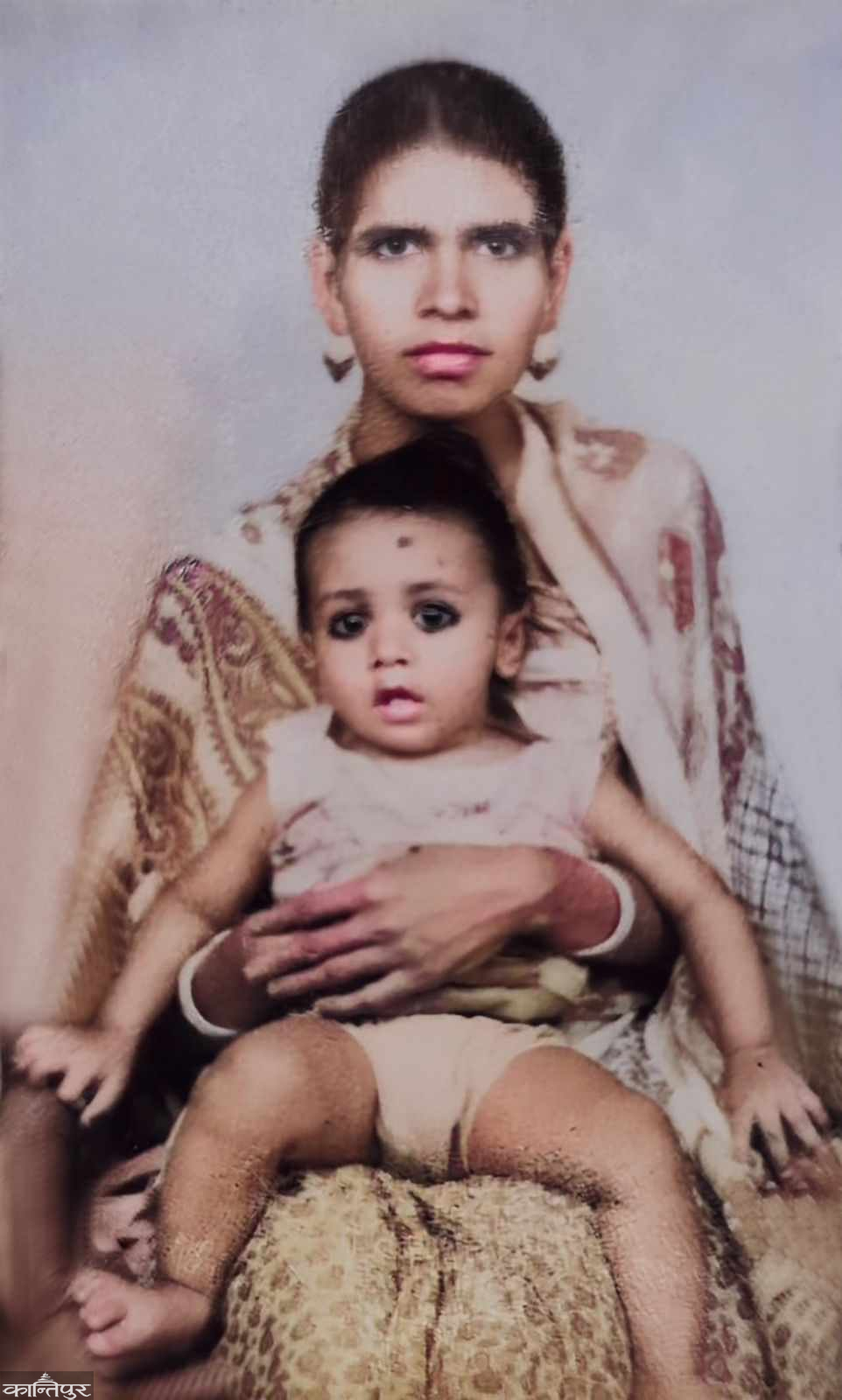
letters, Anil's understanding and culture are no less than those who read Khunkhar. He says – I myself have done DM due to heart disease. Both brothers are also well educated. The culture we have now is the gift of our mother.' Anil is the first Nepali to study DM in heart disease from AIIMS Hospital in Delhi, India.
Anil narrated an incident giving an example of his mother's rites. Which he has also mentioned in his book 'Jevant Sambhan'. A very close relative kept criticizing her father. That too in front of him. Sometimes he would do this even by gathering people together. One day his mother called Anil and said - 'Son, do you even listen to the criticism of your father?' "I never heard of that relative who slandered my father after that," he said, "not only that." I got the knowledge that I should not condemn anyone. So far, my habit is the same. According to
Anil, the word mother is dear to everyone. No one's mother can be compared to another's mother. Because everyone's mother is great. The difference is, how does one receive the rites given by the mother. "Whether literate or illiterate, no mother would think that my child or family would be harmed. While fulfilling everyone's wishes, many of his wishes remain unfulfilled,' he said, 'I feel the same way now. Mom did so much for us when she could. You can't do it now. And, I feel like I couldn't do anything for my mother.''
Reading and not reading affects the logical ability required to maintain one's stance, Anil believes. He also learned this understanding from his mother's experience. The incident still makes Anil's heart sour. Once mother and I went to Mamaghar. The fish was cooked in the evening at Mamaghar. Grandfather said that everyone should eat fish today,' he remembered, 'I said that mother should not eat fish meat. He said why don't you eat. However, I had never seen my mother eat fish. He ate fish that night, unable to stop his grandfather's words. I found out later.
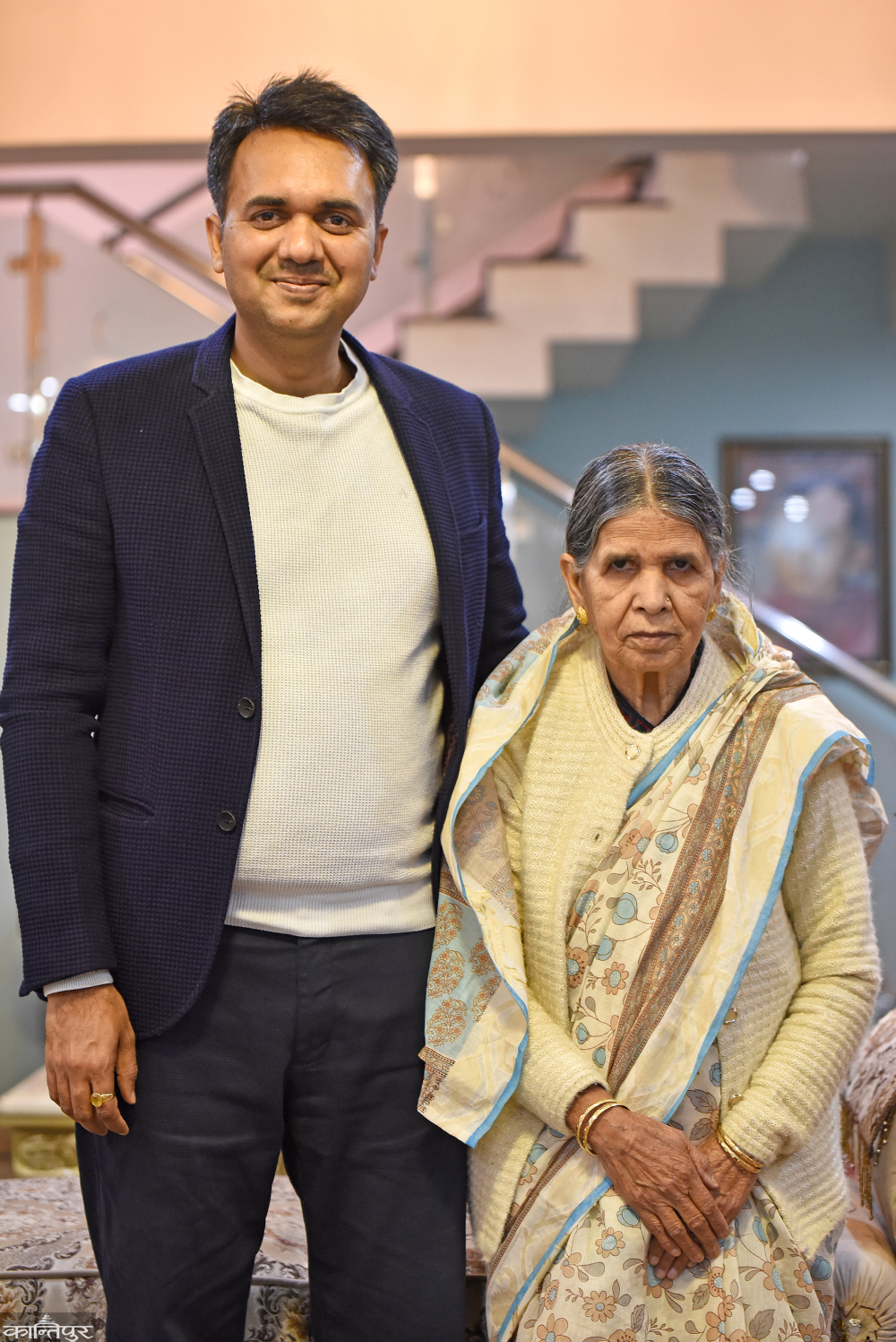
Anil feels that even though his mother ate fish to keep his father's heart, he could not reason about his love. Mother thinks that she should not have to eat fish to please her grandfather. He did not ask his mother. However, he also wonders what would have happened if his mother had not eaten fish that day.
'If my mother was literate, I think she would have told me not to eat fish. It seems that you could argue that it is not established that relationship or respect is proved by eating fish alone,' he said, 'This is one of the major events that I regret that my mother did not read. Otherwise, mother's conscience is much higher than those of us who are educated.
Seeing his mother's experience, Anil feels that a person's thinking, culture and conscience cannot be measured by the level of education alone. "Household and life experiences make people so mature that the decisions they make are much higher than those made by educated people," he said.
No one knows how old Anil's mother is. However, his marriage took place around the age of 15, so he was 75 years old. She is the survivor (sixth) among eight children of her parents, five sons and three daughters. At that time, he says that he got married after accepting the proposal brought by his father's brother-in-law.
At that time, it was customary to get married early in Terai. I already knew Mavali and Khabar. After the father's marriage proposal came, both families agreed and got married," he said. But, after getting married, my mother's daily life definitely changed. According to Anil, the main occupation of his family was agriculture. By the time he found out, though the kitchen was separated from his uncles, the farming was the same. Because the land was good, there was no shortage of workers at home. However, he says that his mother's life was cut short.
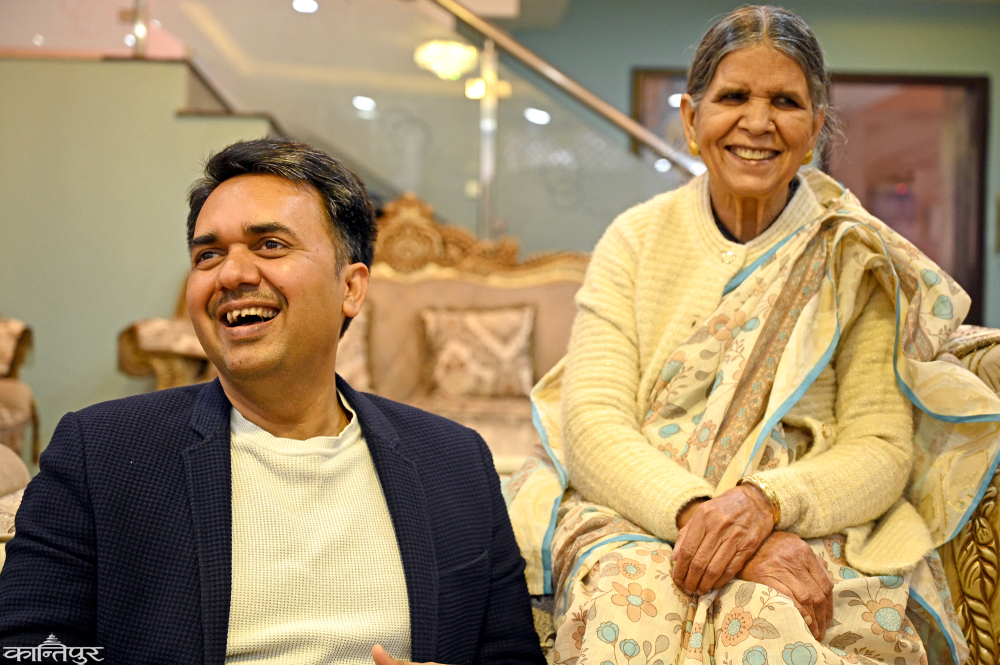
He revealed another secret about his mother. Mother is very angry in her youth. Not as calm as now,' before Anil could say that, his mother cut him off and said in a soft voice, 'It was like that at that time.' After his mother said that, Anil explained something and said, 'But, he was very afraid of his father and brothers. shut up Do not double talk even now. I say that it is culture rather than fear.'
Anil is the youngest of three children. Anil had a son before his elder brother, who died in infancy. Anil narrated an interesting incident about his birth - 'I was not a wanted child. Parents wanted a daughter as the youngest. How long did my father make a vow that if he had a daughter in the Brahmasthan of the village, he would offer two khasi sacrifices.' When Anil was telling this story, his mother, who was sitting with him, was smiling at him. She added – I also wanted a daughter. Even after you, we sacrificed. Even though it was not a daughter, a healthy child was born.'
According to Anil, both of his brothers studied in India and Kathmandu, but he studied up to class 10 in the village school. He stayed at home longer than his brothers and was closer to his parents. "Even though I grew up with my mother, my mother's favorite child is the elder brother," he said. After listening to Anil's words, the mother said – 'No, all children are equal to us.' Manisha Newar, I am a Kshatriya of Terai. We were deeply in love. Manisha was under a lot of pressure from her house to get married," he said. "When I told my mother everything, she said, 'Yes, do it'. After that, our love became perfect.'' Despite growing up in a different environment and culture, Anil feels that the way his mother understood and embraced the advancing society is her pride. Mai, who has spent her entire life as the breadwinner of her son and family, is not able to make the pilgrimage even recently, he feels sad.
Thinking about today, mother cooked and fed us as much as she could. Even when I went to study in Delhi, my parents went with me to find out what to eat there. But, I think I have become somewhat selfish.' According to Anil, he never thought about traveling and pilgrimage as long as his mother could. However, now that his mother is unable to do it, he feels that he should do it. Mother wants to go to Ayodhya lately. But, due to the body, it is difficult to travel that long," he said about his mother's health condition, "She has Parkinson's. You can't stop urinating for a long time.
Sometimes he is happy to see patients who come to check up after going to a pilgrimage. He recounts encouraging such patients that they have done the right thing. There will be a time for everything. But, the right time for mother or her own time will never come," he said, "now it seems that it is too late to understand that. And I am happy in other people's happiness.'
Anil thinks that when she had time, her mother would have thought about herself and her health and come out of the oven. ``Mother has no problem standing for hours to cook, but it would be difficult if she had to walk. That's why I tell all mothers to get into the habit of walking now," he said. "If he had walked or shown the desire to walk, he would have walked. But, now I am innocent.' Perhaps seeing Anil's heartache, Mai encouraged Anil in a small voice and said - 'Ki janai chhi ki hamra ena hotai!'(I knew that this would happen!)
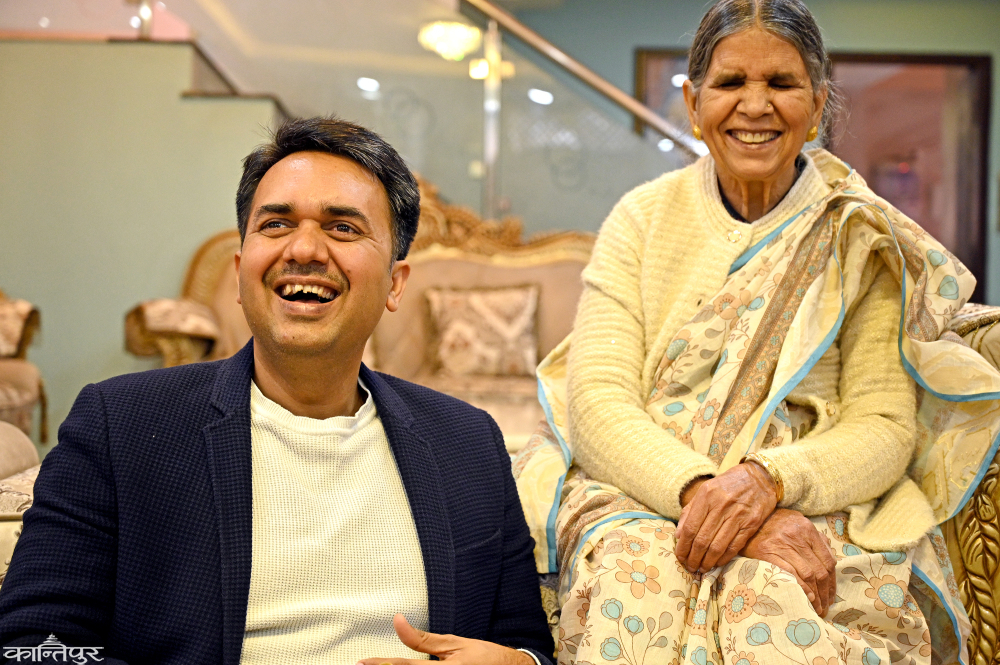


 ३०.१२°C काठमाडौं
३०.१२°C काठमाडौं

















